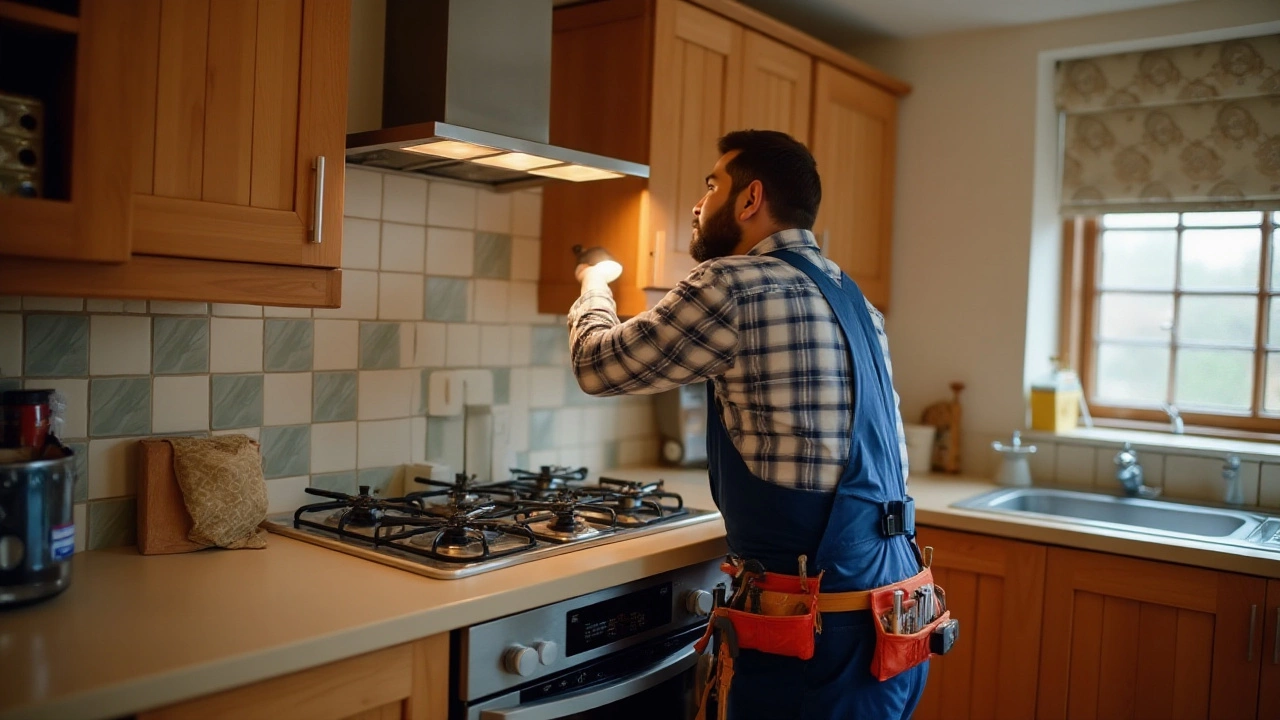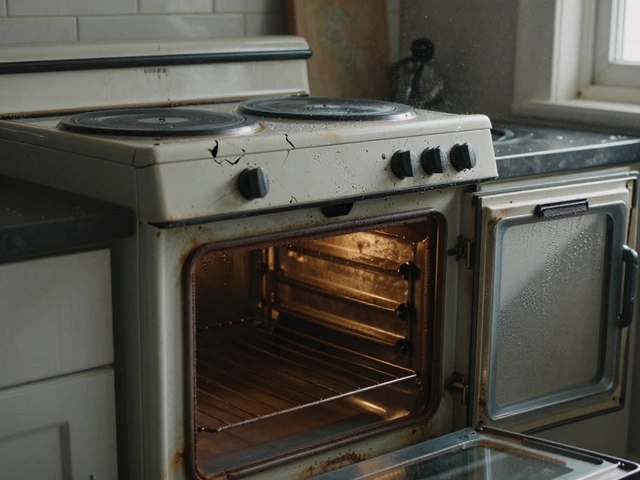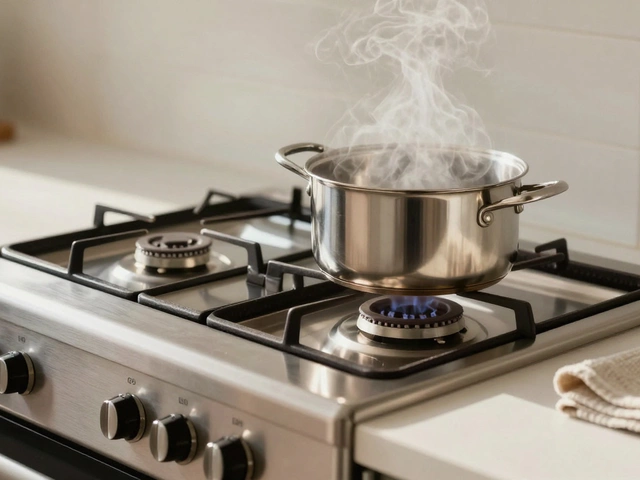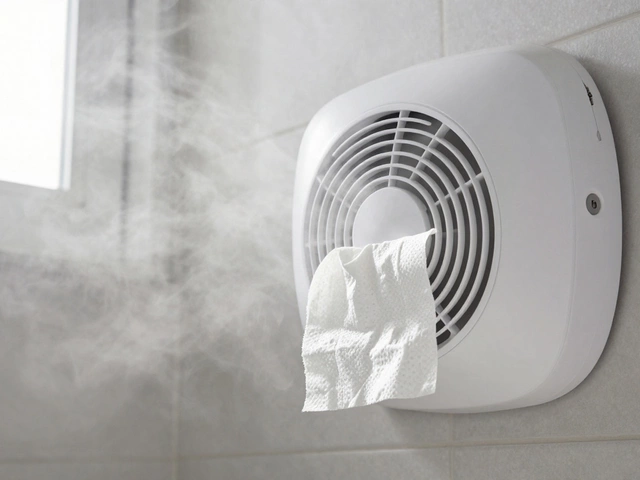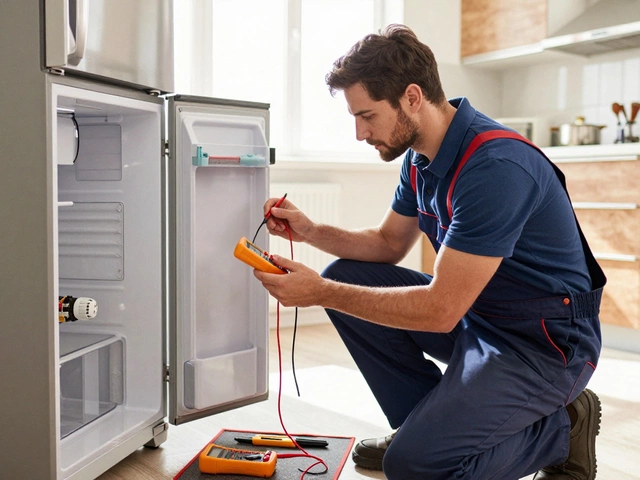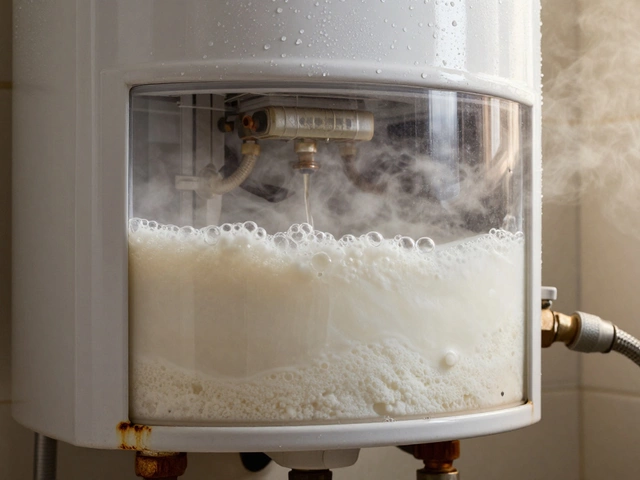Extractor fans serve as unsung heroes in both kitchens and bathrooms, working diligently behind the scenes to whisk away moisture, odors, and unwanted air particles. In the process of updating or maintaining your home, you might find yourself wondering if a plumber is the right professional to install these essential devices. The answer, while straightforward, comes with significant considerations. Let's explore the intersection of plumbing expertise and extractor fan installation.
Plumbers are often associated with anything that involves water, pipes, and drainage. However, their skill set can extend beyond these traditional boundaries. Understanding what a plumber can do in the context of fitting an extractor fan can help ensure your home's ventilation needs are met efficiently and effectively. From assessing the project scope to carrying out the installation, knowing when and how a plumber's skills apply is essential.
- Understanding the Role of a Plumber
- Importance of Extractor Fans
- Can Plumbers Install Extractor Fans?
- Tips for Hiring the Right Professional
Understanding the Role of a Plumber
When we think about plumbers, images of wrenches and leaky pipes might spring to mind. Traditionally, these experts are seen as the go-to professionals for solving water flow issues and maintaining our household piping systems. Yet, their scope of work extends much further than fixing the occasional drip. From installing water systems to ensuring efficient water flow, plumbers are the backbone of household and commercial infrastructures, providing the foundational water and gas that keeps everything running smoothly.
Plumbers receive extensive training that covers not just plumbing techniques, but other aspects of building work as well. This varied training means they are equipped to handle installations that might intersect with their core duties, such as fitting extractor fans. While their main expertise lies in water systems, modern plumbing often involves electrical systems and air flow management, especially in renovations or new constructions. Knowing the physical layout of a property inside out makes them invaluable when an installation requires a multi-disciplinary approach.
Interestingly, plumbers engage regularly with building regulation standards to ensure compliance during installations. For instance, ensuring there's proper ventilation in wet areas like bathrooms to prevent mold growth is part and parcel of what a plumber might commonly advise. A report from the World Health Organization highlighted that poor ventilation is responsible for a myriad of health issues, showing just how critical a plumber's insights can be in safeguarding health and wellbeing in your living space.
The World Health Organization states,"Adequate ventilation strategies succeed in reducing the transmission of airborne microbes and mold accumulation."
Moreover, plumbers have a knack for troubleshooting. In homes where blueprints might be outdated or unavailable, a plumber's in-depth understanding of infrastructure becomes particularly beneficial. They can use their expertise to assess existing systems and suggest the best course of action for installations without disrupting current systems. Moreover, many plumbers who specialize in more extensive projects often provide relevant advice on energy efficiency, steering clients towards options that reduce utility bills while enhancing appliance functionality. This points to the plumber's evolving role from merely a repair figure to a consultant and adviser.
An often overlooked aspect of hiring a plumber for tasks like fitting an extractor fan is their practical knowledge about air flow and sealing methods. While they may not be the electricians who connect the power, their grasp on installing fan ducts efficiently can prove crucial. It’s not just about making something work temporarily, but ensuring longevity by routing air flows properly and considering factors such as the proximity of exhausts to outdoor elements. With this breadth of expertise, it's clear that plumbers are capable partners when it's time to install an extractor fan, making sure everything is up to code and running seamlessly.
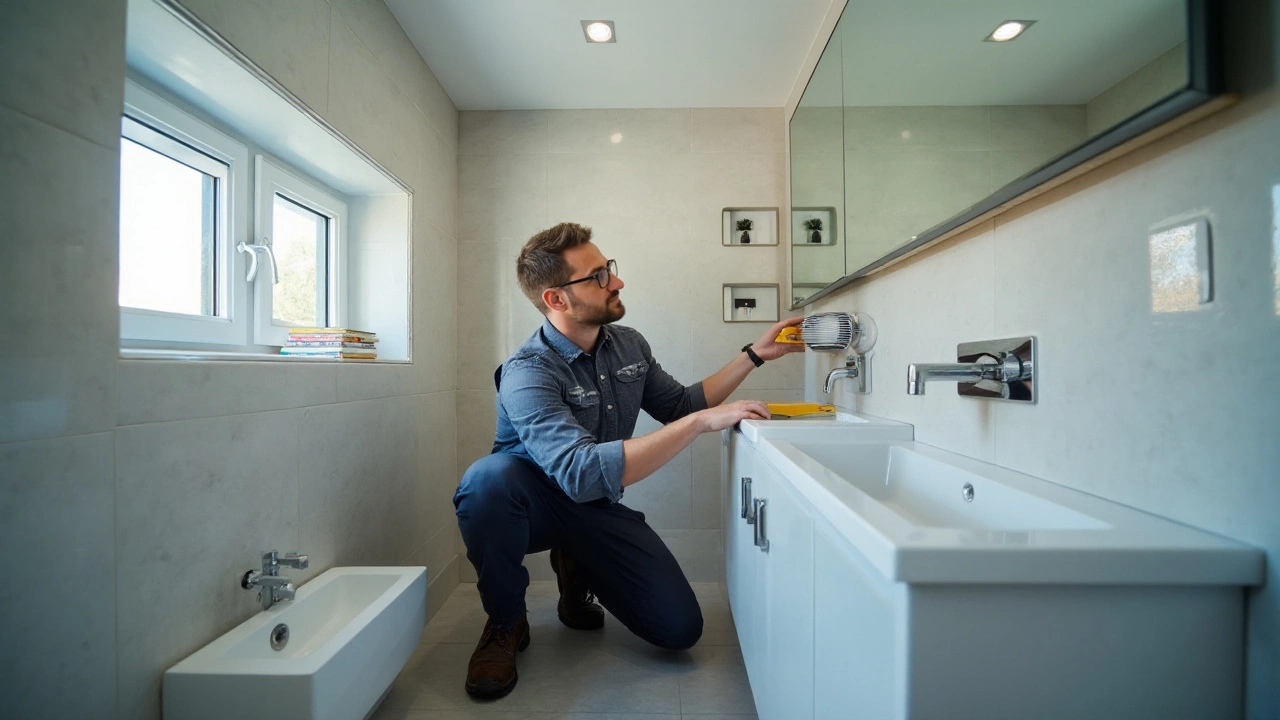
Importance of Extractor Fans
Extractor fans are pivotal components in maintaining a healthy and comfortable environment in our homes. These devices are most commonly found in bathrooms and kitchens, where moisture, steam, and odors are prevalent. By removing excess humidity in a bathroom, for example, an extractor fan helps to prevent mold and mildew, substances that thrive in damp conditions and can contribute to health issues such as allergies and respiratory problems. In kitchens, these fans serve a slightly different role—venting out oily residues, smoke, and strong cooking smells. A well-functioning extractor fan can enhance indoor air quality significantly, making your living spaces more pleasant and reducing potential health hazards. Enhancing air quality isn’t just about comfort; it’s about ensuring your home is a safe place for everyone.
These fans are often underestimated in their ability to significantly impact energy efficiency within the home. By effectively managing humidity levels, they reduce the need for heating or cooling systems to work overtime, balancing temperatures naturally. When installing or considering the use of an extractor fan, it’s insightful to look at the energy savings potential. An investment in a good extractor fan can lead to long-term reductions in utility bills. An energy-efficient home isn’t just about saving money, it’s a commitment to sustainability, which benefits the broader environment.
"Adequate ventilation, provided by systems like extractor fans, effectively mitigates indoor pollutants and is a cornerstone of emerging healthy building practices," notes a study by the World Health Organization.
Extractors come in numerous models, from basic options to more advanced ones with sophisticated features like sensors that automatically activate the fan when moisture levels get too high. Selecting the right fan for your needs requires a bit of research, as different environments have disparate requirements. Some fans are designed for high moisture areas, while others focus on energy efficiency with low running costs. It's crucial to match an extractor fan's performance characteristics to your specific requirements to maximize benefits.
In a world where air quality concern has been proliferating, largely due to increased urbanization, extractor fans stand as sentinel guards of indoor air health. It’s no wonder that these devices have become more than just conveniences—they are necessities in contemporary home design, a linchpin in the creation of environmentally conscious and sustainable homes. Next time you hear that gentle hum, consider the vast difference that hidden machinery is making for your home and well-being, simply and efficiently.
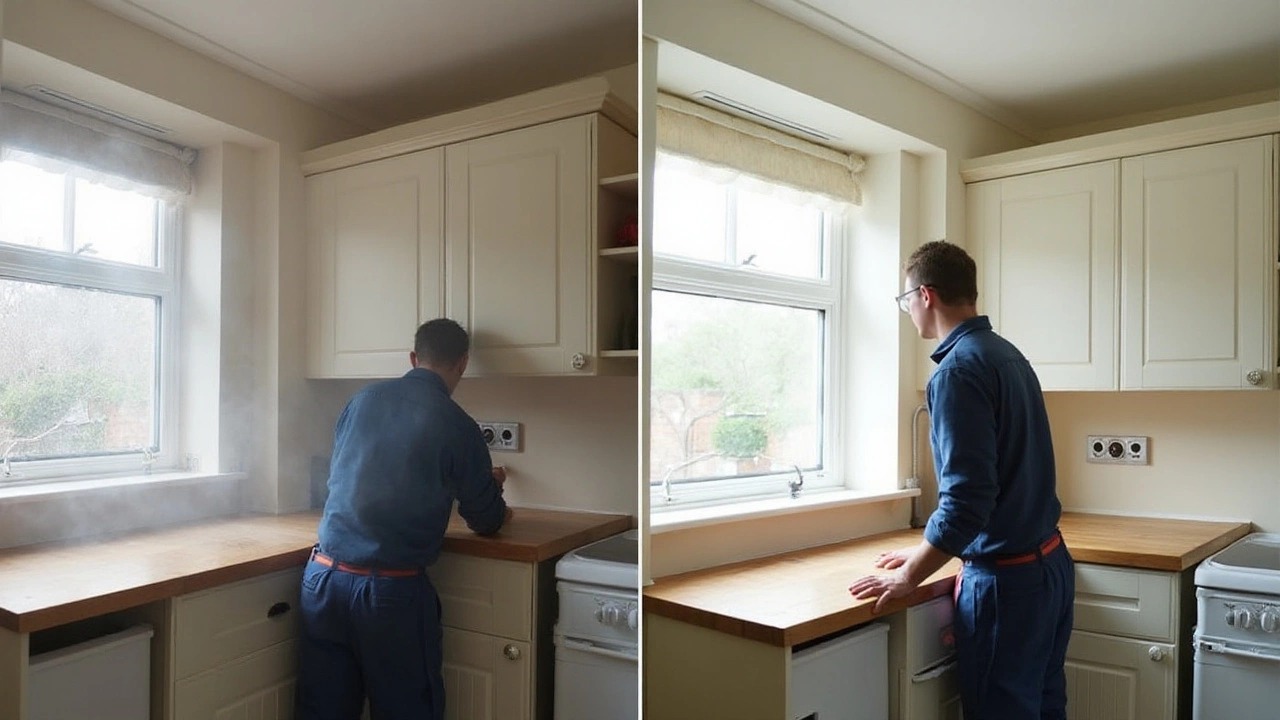
Can Plumbers Install Extractor Fans?
When you're considering the installation of an extractor fan, the first thing you might think of is who to call for the job. It's common to ponder whether a seasoned plumber can take on this task. The skills required for installing these fans often align closely with those of a plumber, especially when it involves bathroom installations where water and moisture play significant roles. Now, why might a plumber be your go-to person? Simply because they are experts in ensuring effective airflow solutions, which is a fundamental aspect of what makes an extractor fan function efficiently.
Extractors are essential in venting out air, preventing dampness, and reducing the potential for mold growth. A plumber is well-versed in the layout of a property’s existing ductwork and plumbing systems. This background gives them a strong foothold in managing installations in a way that minimizes damage to existing infrastructure. In addition to their plumbing expertise, many plumbers are trained in ventilation systems, making them versatile enough to handle extractor fans in both kitchens and bathrooms. Their insight into water and air pathways ensures they can tackle unexpected issues that often arise during installation.
Sometimes, though, the task of installing an extractor fan might involve more than just fitting it into place. Depending on the complexity of the installation, say if it needs to be linked to external ventilation or integrated into your home's electrical system, you might need collaborative effort. In such scenarios, a plumber may team up with an electrician to seamlessly set up the fan. It’s all about making sure everything is performed safely and up to code; sometimes an expert eye is essential in juggling water and electrical aspects in close quarters.
"Understanding a comprehensive approach to home installations can be as crucial as the installation itself," says Martin Glick from Home Renovation Insights. "Often, a multi-skilled tradesperson like a plumber can deliver a holistic service for ventilation projects."
If you're weighing your options on who to hire, note that numerous experienced plumbers are capable of executing these installations with precision and skill. The trick is to find one with proven experience in ventilation work. Asking for references and previous job examples can provide assurance of their capability. Beyond asking the right questions, ensure your chosen professional understands municipal regulations and permits related to ventilation systems. Aware of all the nuances in setup, a competent plumber can make your spaces comfortably breathable and energy-efficient.

Tips for Hiring the Right Professional
Finding the right professional to install your extractor fan can feel like a daunting task, especially with so many options out there. It's crucial to ensure that the person you hire has the right skills and experience to do the job right the first time. Begin by looking for plumbers who are not only licensed but also come with good recommendations. Word-of-mouth and reviews are invaluable. Friends or family who have previously engaged a plumber for similar tasks can offer great insights. They can share their experiences with transparency, which can sometimes be more telling than any online review or advertisement.
When considering a plumber for extractor fan installation, check their familiarity with electrical work. Although a plumber might not typically handle extensive electrical tasks, many have the expertise or colleagues who do. This is especially significant since extractor fans often require electrical connections along with vent adjustments. Engage in a detailed conversation about your needs and ask whether they can cover everything or if they should collaborate with an electrician. Don’t hesitate to seek clarity on any part of the process that seems unclear to you – a reliable professional will always provide straightforward answers and explanations.
Licensing and Insurance
Another key aspect is to ascertain that the professional you hire is both insured and licensed. Licensing ensures that the individual has undergone necessary training and adheres to regional safety standards, while insurance protects both you and them against any mishaps during the installation process. It might be tempting to cut costs by hiring someone without proper credentials, but the long-term risks far outweigh the temporary savings. A licensed professional not only ensures a higher probability of quality work but also aligns with legal requirements, sometimes preventing future issues when selling or remodeling your home.
Ask the Right Questions
“A journey well researched is a journey well taken,” says home improvement expert Jessie Moore.
Prepare a list of questions to ask potential plumbers. Inquire about their experience with installation and repair of extractor fans, specifically focusing on models similar to yours. Ask if they offer warranty on their work. A warranty is often a sign that they stand by their service quality. Another good question is how they handle unexpected challenges or repairs during installation. This provides you insight into their problem-solving skills and adaptability.
Lastly, consider getting quotes from multiple professionals. This not only gives you an insight into the cost spectrum but also helps you set realistic budgeting expectations. While cost is important, it's worth remembering that the cheapest option is not always the best. Weigh cost against expertise and reliability to make an informed decision. Take your time, do thorough research, and you'll end up hiring someone who will ensure your extractor fan operates efficiently and safely, enhancing your home’s comfort levels significantly.
